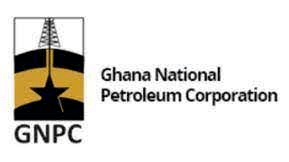GNPC seeks Parliamentary approval for $1.65bn loan to commence oil exploration
Currently, the GNPC is allowed through its GNPC Explorco to participate in the upstream petroleum sector. This means the company can search for potential underground or underwater crude oil and natural gas fields.

The Ghana National Petroleum Corporation has requested approval from parliament for a $1.65bn loan to enable it to purchase two stakes in Ghana’s offshore fields, according to a memorandum submitted to Parliament by the Energy Minister, Dr. Matthew Opoku Prempeh.
The deal is believed to have already received cabinet support, according to a report filed by Accra-based Citi News.
Currently, the GNPC is allowed through its GNPC Explorco to participate in the upstream petroleum sector. This means the company can search for potential underground or underwater crude oil and natural gas fields.
The memoranda submitted to Parliament reveals that the company intends to purchase a 70% stake in the South Deep Water Tano (SDWT), presently operated by AGM Petroleum Ghana Limited. Additionally, GNPC is looking to purchase 37% stakes in the Deep Water Tano/Cape Three Points (DWT/CTP) which is operated by Aker Energy Ghana Limited.
The report filed by Citi News further reveals that the GNPC would form a joint operating company with AGM Petroleum Ghana Limited as well as with Aker Energy.
“Provision of a loan not exceeding US$1.65 billion to finance the acquisition at a price to be negotiated which might not exceed US$1.3 billion and GC Explorco share of capital expenditure (CAPEX) to Pecan Phase 1 First Oil of US$350 million,” the memo read in part.
Additionally, it argued that with major oil companies exiting the country, it is important that GNPC beefed up its own capacity to undertake significant parts of exploration in the country before the oil reserves in the country hit a decline.
“With the shift away from investments in oil and gas into renewable, Ghana faces the risk of stranded assets and dwindling proven reserves if GNPC is unable to undertake exploration, development, and production alone. A declining industry undermines growth, diminishes revenue expectations for Ghana and makes redundant the stock of skilled labor in the industry which Ghana has rapidly built up over the decade.”
GNPC expects that these partnerships would rake in extra 200,000 barrels of crude oil to the country within four and five years.


